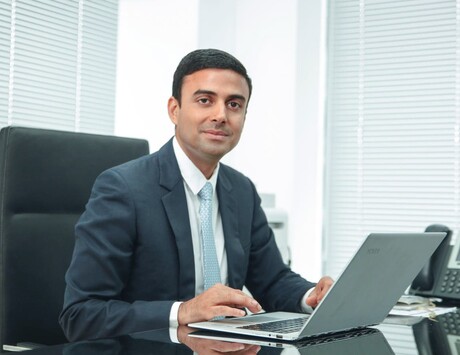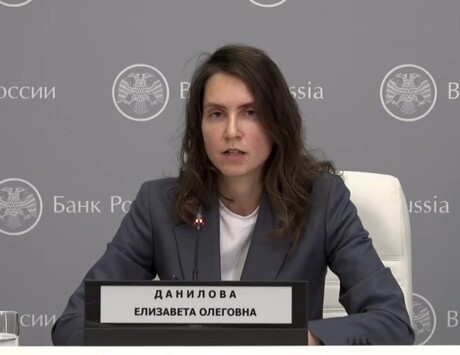Alexander Lebedev, the Moscow-based businessman, philanthropist and Anglophile, has little time for his fellow Russian oligarchs. In an interview with the Guardian last year, he described them as a bunch of greedy, uncultured, semiliterate oiks. They knew nothing of early Italian painting, he complained. "They don't read books. They don't go to exhibitions. They think the only way to impress anyone is to buy a yacht," he added.
Lebedev, by contrast, does not own a yacht and lives comparatively modestly and was relaxed about his heavy losses during the financial crash. "It doesn't make a difference to my life," he said.
Worth £1.3bn, the 50-year-old former KGB spy established himself as a British media mogul when he bought the Independent and the Independent on Sunday in March for the nominal sum of £1, to go with the London Evening Standard, which he turned into a free newspaper.
Lebedev has described himself as a hands-off proprietor: "I never interfere," he said. His UK newspaper empire is overseen by his son, Evgeny, senior executive director of the Standard and chairman of the Independent's new parent company, Independent Print Limited.
Lebedev built up his fortune through banking. He also had a stake in the Russian airline Aeroflot, which he sold earlier this year. He has followed a path well trodden by other Russian oligarchs in buying Britain's sporting assets such as Roman Abramovich, who owns Chelsea FC, and Alisher Usmanov, the metals baron who owns 24% of London rivals Arsenal.
But Lebedev likes to think of himself as different from his fellow Russian billionaires. Lebedev, who worked at the Russian embassy in London until 1992, under the KGB cover of economics attache, describes himself as a capitalist-idealist and he seems to put his money where his mouth is. He has used his large fortune to improve the lot of ordinary Russians and can talk enthusiastically about such unfashionable themes as flat-pack housing and potatoes.
His position inside Russia's elite is an ambiguous one. He lives in Rublyovka, Moscow's exclusive dacha colony and home to celebrities and politicians. But while he is clearly a member of Russia's establishment, Lebedev has used his wealth to fashion a career as an independent political actor, an increasingly impossible task in Vladimir Putin's authoritarian, vertically run Russia.
Lebedev celebrated his 49th birthday in the down-at-heel offices of Novaya Gazeta, the liberal Moscow newspaper he part owns with Mikhail Gorbachev. (The party was styled an anti-crisis event: guests were even invited to bring a bottle.) Novaya Gazeta is one of the last media outlets critical of the Kremlin. Its special correspondent Anna Politkovskaya was gunned down in 2006; few doubt her political enemies arranged her execution.
The twice-weekly paper continues to report on themes the Kremlin-controlled media prefer to ignore - corruption; human rights abuses in Chechnya and the neighbouring republics of Ingushetia and Dagestan and the sinister activities of the FSB, Russia's post-KGB spy agency. Lebedev has offered $1m for information leading to the arrest of Politkovskaya's killer. So far, investigators have, apparently, failed to find her assassin or the person who ordered the killing.
According to journalists on Novaya Gazeta, Lebedev is a tycoon-intellectual with a social conscience. "Most Russian oligarchs seem to settle into, 'We can do nothing.' They spend their days in Courchevel, drinking wine, eating caviar and watching girls dance on the table," said columnist Yulia Latynina. "Lebedev is trying to do something so the country will be better. But he knows that if he does anything to offend people in power there will be punishment."
The businessman's philanthropic interests also extend to Britain, where he is friends with Geordie Greig, editor of the Evening Standard, and other members of the British establishment. Lebedev runs and his son Evgeny run the Raisa Gorbachev Foundation, named after the wife of the last Soviet leader who died of leukaemia in 1999. Lebedev has built a 12-storey cancer hospital in St Petersburg where sick children can be treated free of charge. He is currently trying to build another.
The foundation has held a series of glamorous fundraisers. The first was at Althorp House, the earl Spencer's family pile in near Northampton; the last two events have been at Hampton Court, where Elton John performed in 2007. Guests have included Madonna, Hugh Grant and JK Rowling.
Lebedev's fondness for London is well known. The son of Moscow intelligentsia parents, he studied for a PhD in economics, before joining the KGB's elite foreign intelligence directorate. His time as a spy in London appears to have been a happy one; for his birthday, Novaya Gazeta mocked up a special edition, featuring a spoof letter from his MI6 "contact", who suggested putting a plaque on the west London house where Lebedev lived with other Soviet spies, signing off: "God save the Queen!"
At home, Lebedev's political career has largely been a failure. There has been a long-standing feud with Moscow's veteran mayor, Yuri Luzhkov, who he accuses of destroying the capital's architectural heritage. In 2003, he ran against Luzhkov and lost. He was a member of Russia's Duma until 2007. In 2008, Lebedev and Gorbachev announced their intention to launch a new social democrat party. The project appears to have flopped, largely because political activity in Russia is now impossible without Kremlin approval, but also because of the electorate's apathy.
Lebedev's fortune is based on his ownership of the National Reserve Bank, one of leading private banks in Russian. After the collapse of the Soviet Union, Lebedev returned from London and went into business and became "the spy who came in for the gold". But his multifarious interests go well beyond money. He is also a patron of the arts and a big fan of Chekhov. Lebedev is at home at Knightsbridge parties but clearly prefers the company of playwrights, novelists and fellow intellectuals. He appears to have survived the global crisis better than many of his peers, some of whom are now down to their last $100m.



